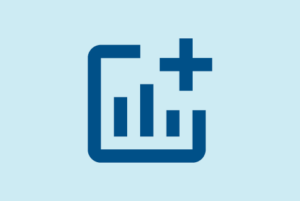On Aug. 12, the Department of Homeland Security (DHS) finalized a rule to change the policy under which the federal government can deny immigrants U.S. entry or adjustment to their legal permanent resident status (e.g., green card) if they are determined likely to become public charges (see CHA’s response). The final rule expands the list of programs that may be considered for determining public charge status, to include not only cash assistance and long-term care but also certain health care, nutrition, and housing programs.
The rule defines the term “public charge” to mean an individual who receives one or more designated public benefits for more than 12 months, in the aggregate, within any 36-month period (such that, for instance, receipt of two benefits in one month counts as two months). The rule greatly expands the benefits considered as public benefit to include:
- Non-emergency Medicaid — Medi-Cal, in California — including long-term care. There are limited exceptions for Medicaid benefits for treating an “emergency medical condition,” youth under the age of 21, pregnant women (including women for 60 days after the last day of pregnancy), certain disability services related to education, and benefits received by children of U.S. citizens who will be automatically eligible to become citizens
- Supplemental Nutrition Assistance Program, referred to as CalFresh in California
- Section 8 Housing Choice Voucher Program, Section 8 project-based rental Assistance, and public housing
Under the current policy, the only benefits considered in determining who is likely to become a public charge are:
- Cash assistance, such as Supplemental Security Income (SSI); Temporary Assistance for Needy Families (TANF), which is referred to as the California Work Opportunity and Responsibility to Kids program in California; and comparable state or local programs
- Government-funded institutional long-term care
In its determination, DHS would not consider:
- Disaster relief
- Emergency medical assistance
- Benefits received by an immigrant’s family members
- Entirely state, local or tribal programs other than those specifically listed
- Benefits that are not listed, such as education, child development, employment, and job training programs
- Benefits received by active duty service members, as well as their spouses and children
- Pell grants
- Special Supplemental Nutrition Program for Women, Infants, and Children
- Low-income subsidies for prescription drug costs under Medicare Part D (which had been included in the proposed rule)
Some immigrants — such as refugees, asylum seekers, survivors of domestic violence, and other protected groups — are not subject to public charge determinations and would not be affected by this rule. Public charge is also not a consideration when lawful permanent residents apply to become U.S. citizens. Additionally, the use of benefits by eligible children who are not applying for status themselves would not be considered under this proposal. The rule would not be retroactive, meaning that benefits — other than cash or government-funded institutional long-term care — that are used before the rule is final and effective would not be considered in the public charge determination.
The proposed rule will be officially published in the Federal Register on Aug. 14. If litigation does not prevent the rule from taking effect, the policy will become effective in 60 days — on Oct. 15.
CHA anticipates that entire households may be fearful to seek needed health care in hospitals, or may delay care until their condition worsens. CHA has prepared a fact sheet for hospitals to use with patients.
Notably, hospitals should not provide legal advice to patients on the impact of the public charge rule on their immigration status, as each situation is different. Instead, hospitals should refer patients to an immigration expert who can advise on the patient’s particular situation. CHA’s fact sheet includes links to online directories of local nonprofit organizations that provide legal help and advice.
Hospitals can still explain whether someone is eligible for a health care or public benefits program, but only a qualified immigration lawyer should advise on whether a patient’s use of the program will affect their immigration status.
Governor Newsom, California’s Attorney General Xavier Becerra, and California Health and Human Services Secretary Dr. Mark Ghaly have each issued public statements opposing the final rule.

